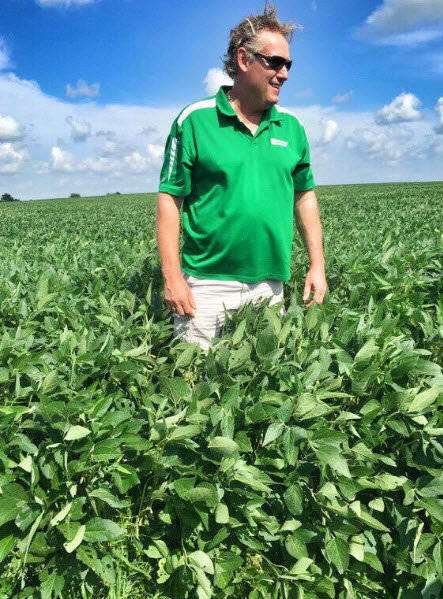Jeff Rasawehr says doing so can help the bottom line
By Diego Flammini
Assistant Editor, North American Content
Farms.com
According to Jeff Rasawehr, founder of Center Seeds, a U.S.-wide distributor of cover crops and seed blends, only about three per cent of farmers use cover crops, and that number is too low.
Rasawehr told The Effingham Daily News (EDN) that farmers can increase their net income by about $200 per acre if they use cover crops properly. The addidion of such crops to a rotation means less is spent on tillage, fertilizers and herbicides.
“By all means, you become more efficient,” he told The Effingham Daily News. “Cover crops are the key tool in managing soil biology. You become more profitable.”

Jeff Rasawehr in a bean field
Photo: Twitter (@covercrops)
The 51-year old has been farming for 35 years, and using cover crops for the last 15.
“By the time you plant your cash crop, the nutrients are already there,” he said.
George and Thad Holsapple, owners of Claybrook Acres near Montrose, Illinois, use and sell cover crops.
That told EDN farmers hav always known about cover crops, but the science and knowledge supporting their use has increased.
George Holsapple said since using cover crops, the water runoff from his farm looks like "water from a tap", which he said is good for him and the environment.
Rasawehr said nearly 80 per cent of farmers he sees using cover crops are doing so incorrectly, and when their yield is low, farmers often abandon cover crops.
He suggested farmers could have a better quality of life because their farm can be more profitable with less stress.